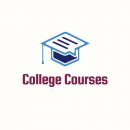Types of college courses according to the nature of the course:
The nature of the course can refer to various aspects, such as whether a course is credit bearing or non-credit bearing, or whether it is a certificate course, a diploma course, an advanced diploma course or a short course. In South Africa, FET courses are also regarded as a particular type of course.
A credit bearing course is a course for which credits are awarded in relation to a course’s contribution to a programme, unit standard, part qualification or qualification. In other words, credit bearing courses are courses that count towards earning a type of qualification or part qualification. If you want to complete different parts of the same qualification at different educational institutions, you need to check whether all of the credits that you have already earned will be transferred.
Certificate courses are usually designed for people who would like to update their skills, to acquire certain new skills, to earn credentials, or to change careers. They are mostly shorter in duration than diploma courses, but this is not always the case.
In South Africa, diplomas are generally career-oriented qualifications. This means that they are aimed at preparing students for a particular line of work and at equipping them with the knowledge and skills that they require in practice. The work covered in a diploma course usually builds on knowledge and skills gained in a prior qualification, such as a certificate. Diploma courses are normally shorter than full degree programmes. An advanced diploma course usually builds on what was covered in the corresponding diploma course.
Short courses are designed to meet specific workplace needs, to teach specific skills, or to allow students to acquire certain knowledge. Short courses therefore usually have a very narrow focus, and, as the name suggests, they are short in duration. They make it easier for students to gain access to education, and help to save time, money and other resources. Short courses are associated with “just in time” and “just enough” learning. This type of course can be either credit bearing or non-credit bearing.
- FET (Further Education and Training) courses
FET courses are post-school courses that are either vocational or occupational by nature. They prepare students for a specific range of jobs or employment possibilities by providing the necessary training and education. FET courses aim to provide students with marketable skills. FET courses can also cover Grade 10-12, which means that students who leave school at the end of Grade 9 can complete their senior certificates through an FET college. Students must be 16 years of age or older to do an FET course. There are FET courses available in a wide range of study fields.
Types of college courses according to method of tuition:
The type of course can refer to either the method of tuition or to the nature of the course.
Colleges offer courses in various ways. Because there are different methods of tuition available for students to choose from, college courses are more accessible to students. Students can choose a study option that suits their own schedule and can easily combine studying with their other commitments if they need to do so. The different methods of tuition are:
- Full-time (classroom-based)
Full-time classroom-based courses usually require students to attend classes during the day on most week days.
- Part-time (classroom based)
Part-time classroom-based courses also require students to attend classes. However, the classes often take place during the evenings and over weekends in order to accommodate people who are working while studying.
- Distance learning
Distance learning courses, also referred to as home study courses, are offered via correspondence like Matric College and Skills Academy. Students are usually not required to attend any classes. This allows students to work and study at the same time, as well as to adapt their schedules to their personal situations. There are fully accredited courses you can take to improve your skills, and the good news is that you can do these courses from home. This is generally a very flexible study option.
With Matric College you can study the following courses without Matric:
- ICB Courses
- Matric Courses
- Accredited Courses
- NATED Courses
- Adult Matric Course
- Beauty Therapy
- Educare and Childcare
- Tourism and Guesthouse
- Events and Wedding Planning
Choosing to study an Educare qualification can be one of the most important career fields.
This is because you are helping to build the lives, confidence, and education of young children. Having a National Qualification (NATED) in Educare also means that you can further both your studies and increase your employment opportunities. With an N4 National Qualification, you can apply to study an N5 National Qualification Course. After which, you are eligible to apply for the N6 National Qualification. With an N6 National Certificate, you can complete 18 months of industry work-related experience and apply for a National Diploma certificate. Matric College have the following Educare courses to offer:
- N4 National Certificate Course in Educare
- N5 National Certificate Course in Educare
- N6 National Certificate Course in Educare
Study Online Matric through Matric College and get that dream career you always wanted. Adult Matric is commonly referred to as Senior Certificate (Amended).
Online study
Online study allows students to complete their courses via the Internet. Online study courses usually involve participation in virtual classroom sessions or online tutorials. In order to do courses online, students are often required to have access to a fast, stable Internet connection.
Different Types of College Classes
Last Updated: 12 January 2022
